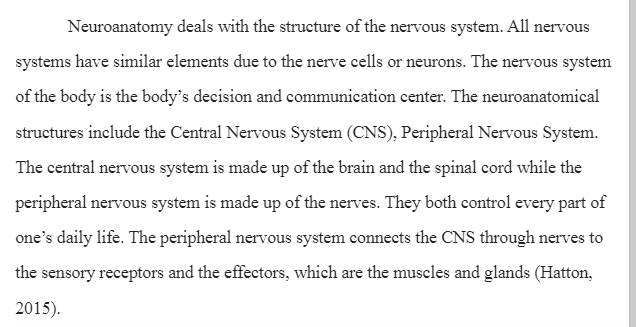Imagine that you are working in a neurology clinic. One of the neurologists tells you that as his or her practice is expanding, he or she is having difficulty meeting the education needs of his or her patients. Part of this problem is explaining the basic neuroanatomical structures to the patients in layperson’s language so that they understand their diagnoses and their underlying neurological impairments. The neurologist asks you to create a written guide for the patients, including both the CNS and the PNS. He or she describes what the basic neuroanatomical structures are, where they are located, how they interact, and what function they serve.
He or she asks you to name the structures by using the correct technical language but to use layperson’s language as much as possible elsewhere.
Your neuroanatomy guide should cover the following:
- Basic neuroanatomical structures (including the CNS and the PNS, as well as the structural packaging that protects the brain from the environment)
- Locations of these structures
- Functions they serve (what functions damage to these areas may affect)
- How they interact
Be sure to explain the information in layperson’s language and use graphics and pictures where helpful. Use APA format when citing material from scholarly sources such as your textbook and online notes. Include a cover page and a reference page listing the resources you used to create your guide.
Answer Preview-Neuroanatomical Structures

